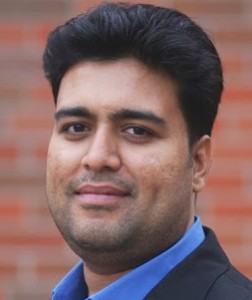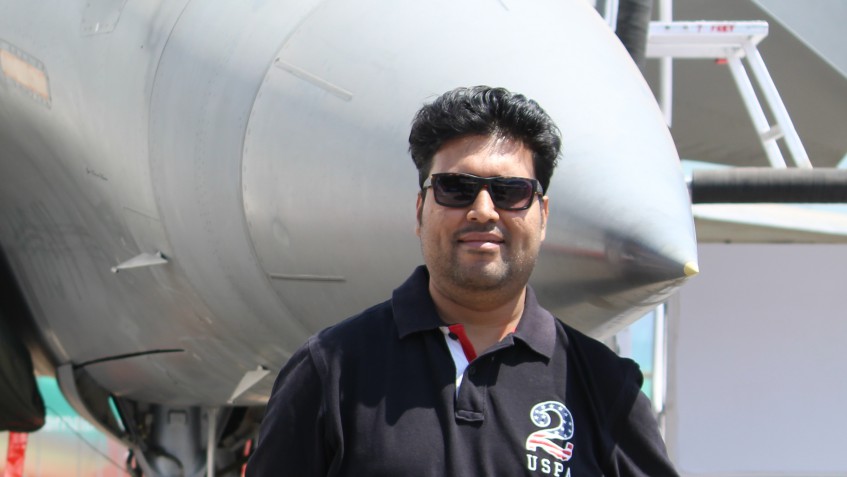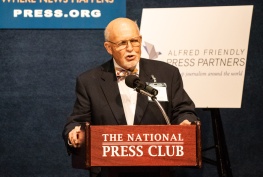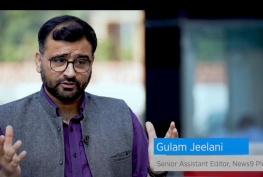Tarun Shukla, a 2015 Alfred Friendly Fellow, was recently asked to create and lead a special investigations unit for Mint, India’s second-largest business newspaper. In April, Mint published the result of Shukla’s investigation into his country’s main airline, which is supposed to be run by Indian business partners. By obtaining secret documents and executive emails, he revealed that AirAsia India is actually run by Malaysia’s AirAsia Bhd., in violation of Indian law. Shukla’s clinching evidence took months to gather and organize. He relied on connections he made during the Alfred Friendly Fellowship Program to help him decide how this story should be constructed and presented and how he should deal with sources that carry such delicate information. In an Q&A with Alfred Friendly communications specialist Maria Jose Dostal, Shukla said his training as an Alfred Friendly Fellow was vital for accomplishing this investigative scoop.
Shukla’s clinching evidence took months to gather and organize. He relied on connections he made during the Alfred Friendly Fellowship Program to help him decide how this story should be constructed and presented and how he should deal with sources that carry such delicate information. In an Q&A with Alfred Friendly communications specialist Maria Jose Dostal, Shukla said his training as an Alfred Friendly Fellow was vital for accomplishing this investigative scoop.
How did you come upon this story idea?
Tarun: Since I have the aviation beat, I had heard murmurs about the existence of the documents for a long time. I had also heard from people who had sought employment with the airline but did not make it. That had stayed with me for about three years until I got a chance to prove this. Now I can confirm people were not getting hired in India because the airline’s plan was to control everything from its base in Kuala Lumpur and they didn’t want people to interfere with this in India.
Where and how did you get the documents?
Tarun: The documents came from people involved with the airline. After much effort, I got the documents from them and it took me about a month and a half to put everything in context and do the story. I took that long also because there were hundreds of emails I had to review, and putting them in context required a lot of research and perspective. The emails were between board directors of the company and I had to be very sure everything was legitimate. The emails corresponded with what was written in the secret agreement documents — that the instructions on how to run the Indian airline come from Kuala Lumpur.
What was the response of the story?
Tarun: The story was a big hit and went viral on Twitter and Facebook. It was tweeted by several prominent journalists and praised. I noticed it was also trending on Twitter in India at number three and number two with hashtags #WhoRunsAirAsia and #AirAsiaScam. Also, the promoter of the airline did not take very kindly to the story. AirAsia founder Tony Fernandes blocked me on Twitter. It was followed by rival business newspapers who also wrote editorials on the story.
How much adversity did you face while trying to cover/publish this story?
Tarun: The adversity came mostly from my sources because I had to convince them I would protect their identities. They were not willing to speak by phone or even on WhatsApp. They were not sure if these were encrypted. So, I had to fly down to another city to meet people for the story. The story was also a success thanks to my editor Sukumar Ranganathan (@mint_ed), who allowed me to have that kind of time and resources necessary to cover this story. The fact that Mr. Fernandes did not answer emailed questions and blocked me on Twitter also did not feel good as I have had great conversations with him going back a decade.
How did your Alfred Friendly training help you?
Tarun: The fellowship helped me in ideating, structuring and bringing international perspective to the story. I also sought views of the some of the professors I met during the fellowship and friends at the Wall Street Journal-Chicago (where I worked as part of the fellowship) on how to put this story together.
What is your favorite memory from your Alfred Friendly fellowship experience?
Tarun: The training at the University of Missouri, conversations with professors at Columbia, and making friends with fellows from five different countries.
For more on this story, please check out Tarun’s investigation, click here.
For more on Tarun’s life and Alfred Friendly fellowship journey, click here.
For Tarun’s blog about the ethics of journalists on social media, click here.
To read Tarun’s story for The Ecomonic Times, click here.





